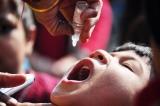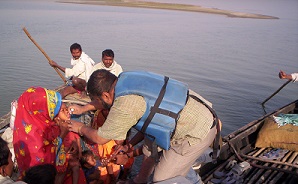
WHO NPSP has worked tirelessly to maintain India’s polio-free status, while gradually transferring knowledge, lessons learned and assets to routine immunization and other immunization programme activities and select priority public health programmes.
The Government of India (GoI) in partnership with WHO, UNICEF and other partners began leveraging the knowledge and infrastructure built around polio eradication to step up routine immunization through Mission Indradhanush (MI). The mission aims at full immunization coverage for at least 90% of children by 2020 through key interventions in areas identified with low immunization coverage. An Intensified Phase of this programme began in October 2017 targeting 190 districts across 16 states and 17 urban areas where immunization coverage is low. Fifty-two districts in India’s North-East Region form a part of this target group of districts.

Leveraging WHO NPSP in the post-polio era to address new and emerging public health priorities has been strongly articulated by government, both at the centre and states, partners and donors.
WHO is also supporting the strengthening of surveillance for vaccine preventable diseases (diphtheria, pertussis and neonatal tetanus) and Adverse Events Following Immunization (AEFI) thus improving data quality for programmatic actions. WHO assisted the GoI in four keyways: (1) risk-analysis, mapping the high-risk pockets and settlements for inclusion in micro-plans; (2) capacity-building and training key personnel; (3) monitoring routine immunization activities; and finally (4) in building an accountability framework.
Committed to the goal of achieving measles elimination and rubella control by 2020, India has accelerated efforts to intensify measles-rubella (MR) immunization and surveillance across the country. In this direction, India has launched the world’s largest global Measles-Rubella campaign; it will reach 410 million children of nine months to 15 years over the next 2 years through phased nationwide campaigns with a single shot of MR vaccine. The campaign dose not only provides immunity boosting for children against measles and rubella but also provides a second opportunity for children left out in routine immunization. The MR campaign is being implemented with technical support from WHO India and other stakeholders and is a major step towards reducing childhood mortality and addressing birth defects.
After polio-eradication, WHO-NPSP has transitioned into supporting routine immunization, elimination of measles and control of rubella, control of other vaccine-preventable diseases including VPD surveillance and supporting efforts to eliminate neglected tropical diseases for broader public health impact.
